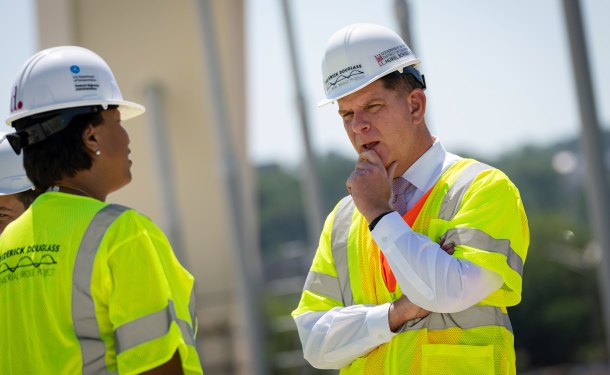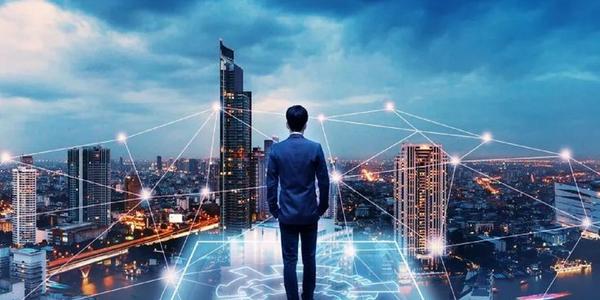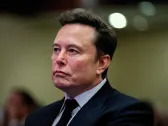
As we hurtle towards a future where automation is increasingly prevalent, it’s easy to get caught up in the extremes of the debate. On one hand, there are those who fear that automation will displace human workers and create widespread unemployment. On the other hand, some proponents argue that automation will bring about a utopian future where technology has created a new class of high-paying jobs and removed the need for work altogether.
The Middle Ground
But what if neither of these outcomes is accurate? What if the truth lies somewhere in between? It’s a topic that requires nuance and careful consideration, one that demands a balanced approach to address the concerns surrounding automation.
As someone who frequently engages with technologists, roboticists, and venture capitalists, I’ve noticed that we often brush past broader concerns in favor of embracing the potential benefits of automation. However, it’s essential to acknowledge that the impact of automation will be felt differently by various groups within society.
The Utopian Fallacy
In my experience, the truly utopian outcome is rarely the correct one. Life is more complex and subtle than that. The future is often marked by unforeseen consequences, which disproportionately affect those who are least equipped to defend themselves.
It’s precisely this kind of nuance that makes it essential for companies and regulatory bodies to play a crucial role in shaping the impact of automation on the workforce. By working together, we can create a more equitable outcome, one where technology is harnessed to augment human capabilities rather than replace them.
A Pragmatic Approach
To this end, I’m pleased to introduce U.S. Labor Secretary Marty Walsh as our guest for today’s conversation at TC Sessions: Robotics 2022. With a background as a union organizer and his experience serving as Boston’s mayor for six years, Walsh brings a pragmatic perspective to the table.
Automation: A Long-Term Opportunity
Walsh notes that, "I’ve been in politics for 25 years, and for 25 years, we’ve been talking about automation replacing people." He adds, "We were forward-looking in the city of Boston. Innovation does bring different kinds of jobs. How do we make sure people are skilled and trained up to actually be able to access those jobs? If you don’t do that, then obviously it’s going to have an impact on people."
The Short-Term Challenge
While there’s consensus among many experts that technology will create more and better jobs in the long run, what happens to blue-collar workers in the short term? How can we support and train them to be better prepared for the future? And who ultimately bears the responsibility for ensuring a smooth transition?
A Shared Responsibility
Walsh emphasizes that companies, governments, and workers must work together to address these concerns. "We’re not just talking about creating jobs; we’re talking about creating opportunities," he says.
He highlights the importance of investing in education and training programs that equip workers with the skills needed to thrive in an automated economy. This includes initiatives such as apprenticeships, vocational training, and lifelong learning.
Building a Stronger Workforce
Walsh also stresses the need for companies to take ownership of their role in shaping the impact of automation on the workforce. "We’re not just talking about creating jobs; we’re talking about creating opportunities," he reiterates.
This requires a commitment to upskilling and reskilling existing workers, as well as investing in new talent acquisition strategies that prioritize diversity and inclusion.
A Union’s Role in the Automation Era
As Labor Secretary, Walsh has been vocal about the importance of unions in protecting worker rights and interests. "Unions are not just there to negotiate wages and benefits," he notes. "They’re there to advocate for workers’ rights and help them navigate the changing landscape."
Walsh believes that unions can play a critical role in ensuring that companies prioritize worker well-being and safety, even as they adopt new technologies.
The Future of Work
As we move forward into an era marked by increasing automation, it’s essential to recognize that the future of work will be shaped by a complex interplay between technological advancements, economic trends, and societal needs.
By finding a middle ground between the extremes of the debate, we can create a more equitable outcome for all. One where technology is harnessed to augment human capabilities, rather than replace them.
Join the Conversation
As we continue this conversation at TC Sessions: Robotics 2022, I invite you to join us in exploring the intricacies of automation and its impact on the workforce. Together, let’s strive for a future where technology and human ingenuity work hand-in-hand to create opportunities for all.
Related Topics
- AI
- Automation
- Hardware
- Labor
- Marty Walsh
- TC Sessions: Robotics 2022
- Union
Stay Informed
To stay up-to-date on the latest news and insights in AI, automation, and robotics, be sure to subscribe to our newsletters:
- TechCrunch Daily News
- TechCrunch AI
- TechCrunch Space
- Startups Weekly








